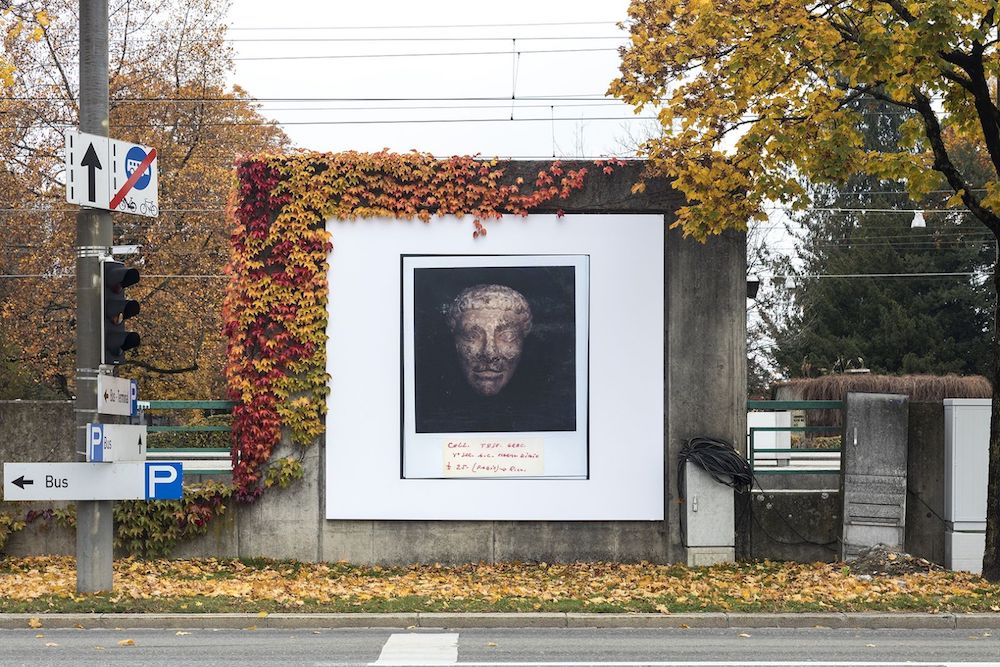
Maeve Brennan
The Goods, 2018, photographic installation
Guling Street Avant-garde Theatre

The Goods is part of an ongoing series of billboards by Maeve Brennan, produced in collaboration with the forensic archaeologist Dr. Christos Tsirogiannis. The series draw from Tsirogiannis’ digital archive of over 30,000 images depicting more than 100,000 illicitly traded antique objects. The images give a sense of the largely invisible economy of the illegal antiques market, which is one of the most profitable, after weapons and drug trafficking. Tsirogiannis uses this archive to identify antiquities of potentially illicit origin in museums, collections, commercial galleries, and auction houses by comparing the objects to images from the confiscated archives of three convicted dealers. As a result of his work, the objects are often seized and repatriated to their country of origin.
Each billboard in the exhibition features an artifact identified by Tsirogiannis as illicitly traded and discovered in various locations, including Frieze Masters, London, The Metropolitan Museum of Art, New York and the private collection of the New York billionaire Michael Steinhardt. Embracing one of art theorist Ariella Azoulay’s most poignant definitions, The Goods seems to enact the practice of “potential history,” a rehearsal in non-imperial critical thinking not intended to “mend the worlds after violence but rewind(s) to the moment before the violence (of looting) occurred and (setting) off from there.”
At a moment when there is increasing awareness of the relationships between colonialism and the histories of museum collections, Brennan sheds light on forms of exile and repatriation that affect dispossessed objects as
much as the communities they belong to.
-Curator|Giulia Colletti


